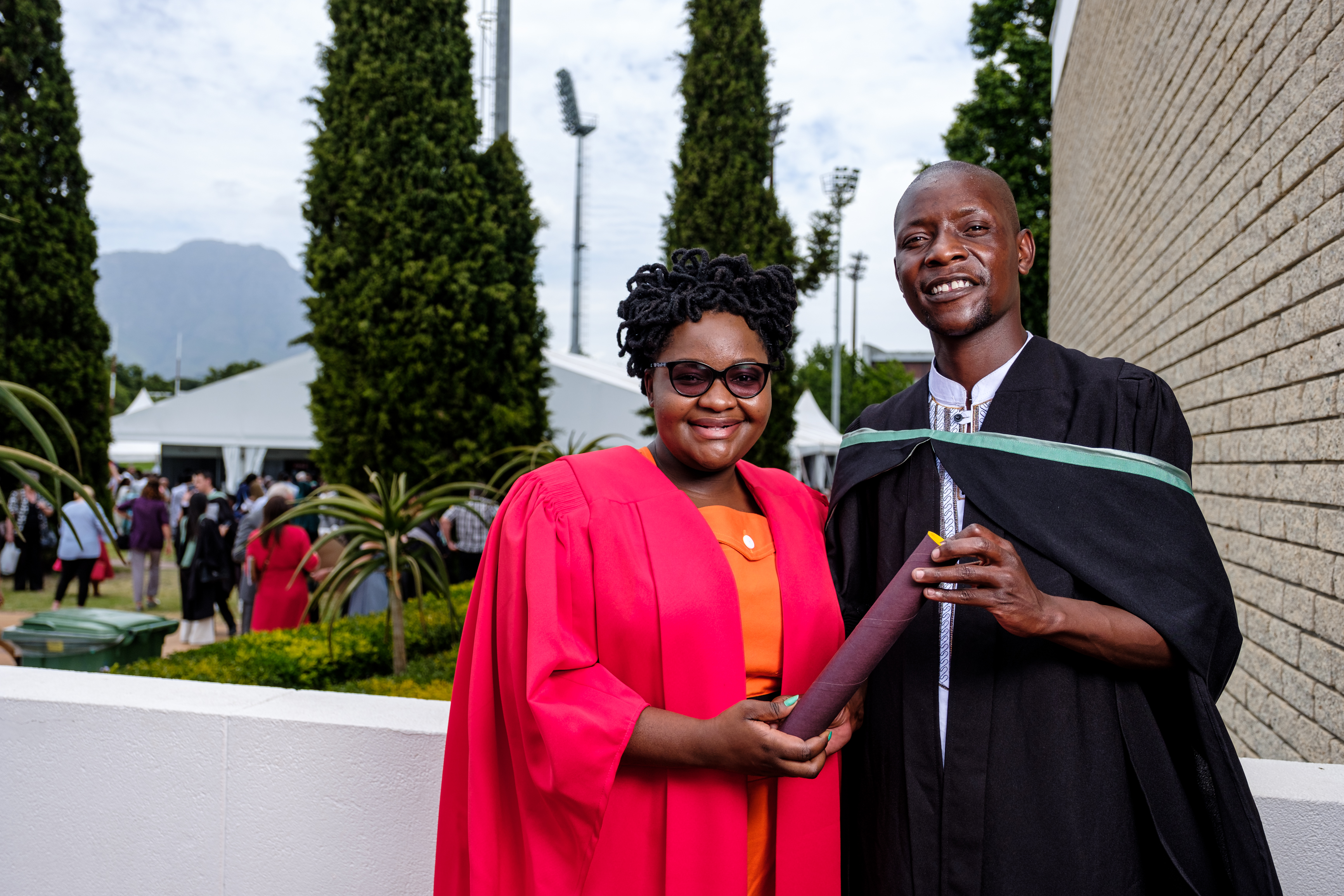The dream of finding a better life in South Africa has turned into a nightmare for Zimbabwean migrants with disabilities living in Cape Town, a new study at Stellenbosch University (SU) found.
“The voices of these disabled migrants are largely absent from migration and disability policies and literature which means they're often marginalised, lack access to social services and have to do menial jobs where they are either underpaid, exploited or not paid at all," says Noel Dangarembwa who obtained his master's degree in Human Rehabilitation Studies on Tuesday (10 December 2019) at the third graduating ceremony of SU's December graduation. Also hailing from Zimbabwe, Dangarembwa explored the livelihood experiences of Zimbabwean migrants with disabilities living in Cape Town. His supervisors were Drs Lieketseng Ned and Martha Geiger from the Centre for Disability and Rehabilitation Studies in SU's Faculty of Medicine and Health Sciences.
Dangarembwa says he decided to do the study because although remarkable disability studies have been conducted in South Africa, they have paid little attention to the livelihood experiences of migrants with disabilities who generally have a harder time in host countries than able-bodied migrants.
“Most policies and literature on migration are devoid of livelihood experiences of migrants with disabilities both internationally and locally."
Dangarembwa says that in interviews he conducted with the disabled Zimbabwean migrants , they revealed that South Africans regard them as inferior and “good for nothing disabled foreigners" who come to squander the resources of the country. 
“Migrants with disabilities are labelled with inferiorised identities which hamper their access to social services and continuously deny them livelihood opportunities to sustain themselves in South Africa due to their assigned identities of being disabled and a migrant.
“What is clear is that the intersection of disability and the migrant status coupled with social locations such as gender and socio-economic status confines migrants with disabilities to the peripheries of livelihood sources.
While others had managed to pursue their interests like part-time sewing and braille transcription and massaging, the options of the majority were commonly limited to begging – an activity that is seemingly 'fit' for disabled migrants which exposed them to exploitation and ridicule by an able-bodied society which questions both their impairments and justification for migrating, explains Dangarembwa.
He says most Zimbabwean migrants with a visual impairment revealed that they sustain their livelihoods through begging at traffic intersections where they often face ridicule and derogatory name-calling, as well as the risk of being run over by vehicles or losing some of their daily takings to their sighted helpers who take advantage of their visual impairment.
“Despite this though, these migrants remain resilient in using begging as way to earn a living in South Africa," adds Dangarembwa.
He bemoans the serious lack of institutional support for Zimbabwean migrants with disabilities.
“In instances where they are given support, they are expected to be grateful for whatever they receive, without being allowed to ask any questions, or to voice their needs and concerns that are unique to their migration status and disability."
Dangarembwa says his findings have exposed the vulnerability of migrants with disabilities, while also raising crucial questions regarding the United Nations' 2017 Migration Report which mentions only women and children as examples of vulnerable migrants.
“This is particularly concerning because the United Nations Convention on the Rights of Persons with Disabilities (CRPD) has specific articles which speak to migration and disability. Disabled people form part of the collective migrant groups, and thus vulnerable to oppression."
Calling on the South African government to fully implement the ratified and signed CRPD, Dangarembwa says it should review its migration policies to provide reasonable accommodation for Zimbabwean migrants with disabilities that will enhance their full participation in and contribution to all spheres of live in South Africa.
He says both Zimbabwe and South Africa must collaborate to address policy barriers which prevent migrants with disabilities from obtaining the necessary documents that will make it easier for them to access various opportunities for sustainable livelihood.
“Both governments should work together to facilitate the voice of migrants with disabilities to incorporate their needs and concerns into the design and implementation of appropriate policies."
Dangarembwa adds that more research is needed on migration and disability policies and practices to extensively interrogate the livelihood sources of disabled migrants.
- Main photo: Noel Dangarembwa at the graduation ceremony. Photo 1: Noel Dangarembwa with one of his supervisors Dr Lieketseng Ned. Photographer: Stefan Els
FOR MEDIA ENQUIRIES ONLY
Noel Dangarembwa
Cell: 0764563717 / 0834795224
E-mail: proson2019@yahoo.com
ISSUED BY
Martin Viljoen
Manager: Media
Corporate Communication
Stellenbosch University
Tel: 021 808 4921
Email: viljoenm@sun.ac.za

